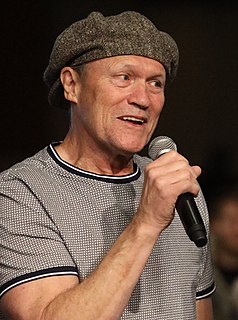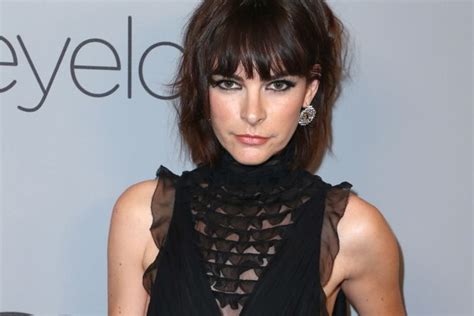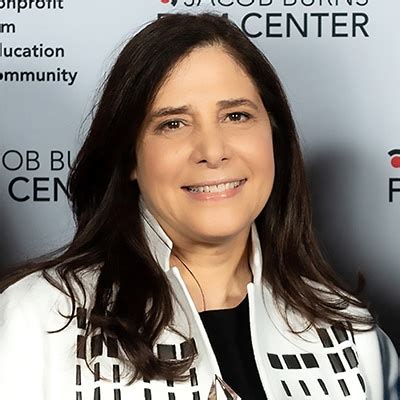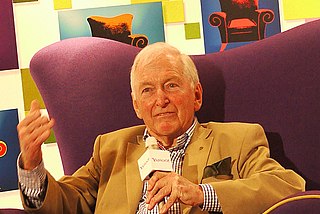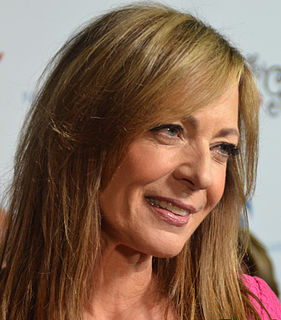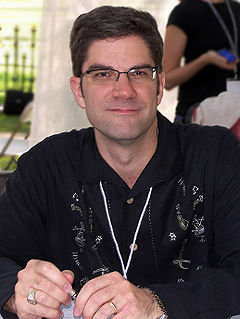A Quote by Michael Rooker
You know how it is, somebody will see your work and like it and remember it, then decide to make it a role in their film.
Related Quotes
Only you know your circumstances, your energy level, the needs of your children, and the emotional demands of your other obligations. Be wise during intensive seasons of your life. Cherish your agency, and don’t give it away casually. Don’t compare yourself to others — nearly always this will make you despondent. Don’t accept somebody else’s interpretation of how you should be spending your time. Make the best decision you can and then evaluate it to see how it works.
I'm not a big note-taker, so I think that the way I decide is that whatever I remember I always consider something that's important. If I remember a joke then I know it's a good joke, if I remember a story then I know it's a good story, and so that's how I curate what stories I'm going to write for the book. And I go over them again, make sure there's a theme and all that stuff, but mostly, it is intuition.
With a director it's all about the work; I'd work with a great director over - you know, I'm not the kind of actor who that doesn't go, 'I want to play this role.' It's more like, 'I want to work with this director,' regardless of what the role is because if it's a good director, you'll probably find a good role because it's a decent film. But a mediocre director will always make a mediocre movie.
If you don't know where you are going, then how will you get there? VISUALISE! Make pictures in your mind. See the desination. Imagine your arrival. Dream in perfect detail. See yourself the way you want to be when you arrive. See yourself arriving. Make yourself a road map and study it every day until you know the way and the destination by heart.
I will see 100 or 200 and I will take my time with them and I audition them for the two main roles. If I like what I see, but they're not exactly right for the role, I'll think well I have this other role that might work for them. Sometimes I will write a role for them because I want to work with them because they're so good.
I do like ensemble work. I would like to do a lead role, though. I didn't shy away from that.
I'm desperately looking for a lead role to do in a film, an independent film, and it just hasn't come my way yet. I'm desperately looking for that role that will put me in a lead category. Or a television series.
Think about death. You do not know how much time remains to you. And remember that if you do not become different, everything will be repeated again, all foolish blunders, all silly mistakes, all loss of time and opportunity - everything will be repeated with the exception of the chance you had this time, because chance never comes in the same form.You will have to look for your chance next time. And in order to do this, you will have to remember many things, and how will you remember then if you do not remember anything now?
No one forces me, or any other writer, to sell a film option on the books. If you don't want to run the risk that the filmmakers may adapt your work in a way you don't like, then you don't sell the option. You know when you sell it that they will have to make some changes, just because film and TV are different media than books.
We can carry the burden of hurt throughout our lives. We can make the hurt that we have experienced the defining aspect of our stories of ourselves. That means that somebody else gets to say who we are, somebody else gets to decide how we feel, and somebody else gets to decide how we see the world. Forgiveness not only frees us from the burden of someone else's opinion of us, but it allows us the opportunity to really write a story of ourselves that we can love, enjoy, relish, and live into.
For me, as a film goer, I like nothing more than to sit in the cinema, have the lights go down and not know what I'm about to see or unfold on-screen. Every time we go to make a film, we do everything we can to try to systematise things so we're able to make the film in private, so that when it's finished it's up to the audience to make of it what they will.
